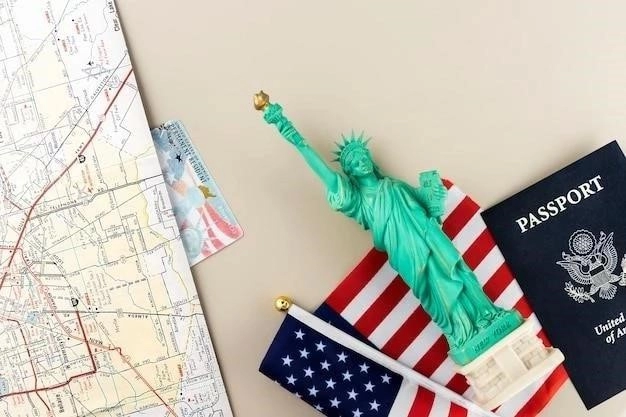The Historical Roots of American Exceptionalism
The concept of American exceptionalism, often traced back to John Winthrop’s 1630 sermon “A Model of Christian Charity,” is deeply interwoven with the nation’s historical narrative. Winthrop’s vision of a “city upon a hill,” while initially referencing a Puritan religious experiment, laid the groundwork for a belief in America’s unique destiny and moral responsibility. This notion was further fueled by the ideals of the European Enlightenment, which resonated deeply with the Founding Fathers and shaped the nation’s founding documents.

Manifest Destiny and the Shaping of National Identity
The 19th century witnessed the explosive rise of “Manifest Destiny,” a concept that profoundly shaped American national identity and its sense of exceptionalism. This belief, rooted in a conviction of America’s divine mission and inherent virtue, propelled westward expansion and profoundly influenced the nation’s self-perception. Manifest Destiny was not merely about territorial acquisition; it represented a belief in the inherent superiority of American democracy and a divinely ordained duty to spread its principles across the continent. This expansion, while often portrayed heroically, came at a tragic cost, displacing and disenfranchising Native American populations and igniting fierce debates about slavery’s expansion.
The Louisiana Purchase of 1803, more than doubling the nation’s size, provided fertile ground for Manifest Destiny to take root. This acquisition, championed by Thomas Jefferson, fueled the imagination of a nation destined to span the continent. The term itself, coined in 1845, encapsulated a potent mix of national pride, economic ambition, and racial prejudice. It provided justification for the annexation of Texas, the Mexican-American War, and the displacement of Native Americans from their ancestral lands.
The legacy of Manifest Destiny is complex and fraught. It fueled incredible growth, technological innovation, and the forging of a continental nation. However, this expansion came at the expense of indigenous peoples and exacerbated the sectional tensions that would eventually lead to the Civil War. The belief in American exceptionalism, so central to Manifest Destiny, served to justify both noble aspirations and morally questionable actions, highlighting the inherent contradictions embedded within the concept.

American Exceptionalism in the 20th Century
The 20th century witnessed a dramatic evolution in American exceptionalism, transitioning from territorial expansion to a global leadership role fueled by economic might, military power, and ideological struggle. The two World Wars, while initially challenging isolationist sentiments, ultimately solidified the United States’ position as a dominant force for democracy and freedom on the world stage. Post-World War II, the Cold War further intensified the narrative of American exceptionalism, framing the nation as a beacon of hope against the perceived threat of Soviet communism. This era witnessed substantial investments in scientific advancement, military buildup, and cultural diplomacy, all aimed at promoting American values and securing its global hegemony.
However, this period also exposed the complexities and contradictions inherent within American exceptionalism. The Civil Rights Movement challenged the nation to reconcile its lofty rhetoric of equality with the realities of racial discrimination and segregation. The Vietnam War, a deeply divisive conflict, raised profound questions about the limits of American power and the righteousness of its interventions abroad. Despite these challenges, the notion of American exceptionalism retained a powerful hold on the national psyche, even as its meaning and implications were fiercely contested both domestically and internationally.

The fall of the Berlin Wall in 1989 and the subsequent collapse of the Soviet Union seemed to reaffirm American exceptionalism, heralding a “unipolar moment” with the United States standing as the sole superpower. Yet, the triumphalism of this era proved short-lived. The rise of globalization, the emergence of new global powers, and the specter of terrorism presented fresh challenges to American exceptionalism in the 21st century, forcing a reevaluation of its role and responsibilities in an increasingly interconnected and complex world.

Criticisms and Challenges to American Exceptionalism
Despite its enduring presence in the national narrative, American exceptionalism has faced persistent criticism and significant challenges throughout its history. Detractors argue that the concept fosters a dangerous sense of national superiority, justifying self-interested actions on the world stage while masking internal contradictions and historical injustices. They point to instances where the pursuit of American exceptionalism has led to military interventions with devastating consequences, the exploitation of other nations for economic gain, and a reluctance to engage with global issues in a cooperative, multilateral manner. Moreover, critics contend that the exceptionalist narrative often overlooks the contributions of other nations and cultures, perpetuating a myopic worldview that hinders effective global engagement.
Within the United States, internal critics, often marginalized groups who have experienced the nation’s shortcomings firsthand, challenge the narrative of American exceptionalism by highlighting the vast disparities in wealth, opportunity, and justice. They point to the persistent legacies of slavery and racial discrimination, the struggles for economic and social equality faced by minority groups, and the erosion of democratic norms through voter suppression and political polarization. These internal critiques argue that true exceptionalism lies not in claiming inherent superiority but in acknowledging past transgressions, actively addressing present inequalities, and striving to create a more just and equitable society for all its citizens.

The debate over American exceptionalism is not merely an academic exercise; it carries profound implications for the nation’s domestic and foreign policy. Recognizing and grappling with these critiques is essential for a balanced and nuanced understanding of American history and its place in the world. Ultimately, the question remains whether American exceptionalism will continue to serve as a source of national pride and a catalyst for positive change or as a shield for self-serving actions and a barrier to genuine global engagement.

The Enduring Appeal and Future of American Exceptionalism
Despite the ongoing debates and internal critiques, the notion of American exceptionalism continues to hold a powerful allure, both within the United States and for many around the world. This enduring appeal stems from the deeply ingrained belief in the nation’s founding ideals: liberty, equality, democracy, and opportunity. The image of America as a “city upon a hill” offering refuge and a chance for a better life continues to resonate, attracting immigrants and inspiring hope for those striving for freedom and self-determination. Moreover, the United States’ history of innovation, its entrepreneurial spirit, and its capacity for reinvention fuel the perception of its unique place and potential in the world.
However, the future of American exceptionalism hinges on the nation’s ability to reconcile its lofty ideals with its complex and often contradictory history. Addressing persistent inequalities, confronting systemic racism, and upholding democratic norms are not only essential for internal cohesion but also for maintaining its credibility as a global leader. Furthermore, navigating an increasingly multipolar world requires embracing multilateralism, fostering genuine partnerships, and recognizing the valuable contributions of other nations and cultures.

American exceptionalism, rather than being a static or self-evident truth, should be understood as an ongoing project, a continuous striving to live up to its founding principles. Embracing a more nuanced and inclusive understanding of its own history, acknowledging past mistakes, and actively working towards a more just and equitable society will be crucial for the United States to truly fulfill its potential as a beacon of hope in the 21st century and beyond.










